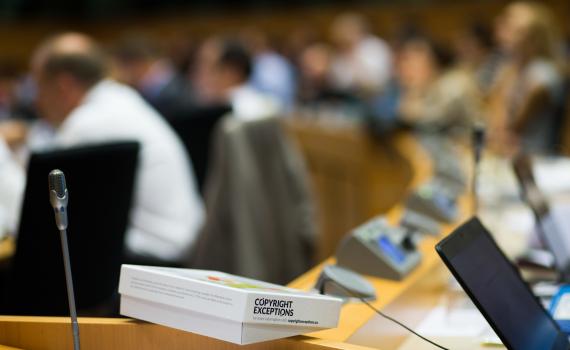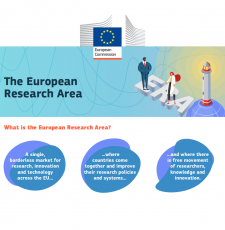
In Part I of this two-part blog, EIFL Copyright and Libraries Programme Manager Teresa Hackett looks at the immediate challenges the COVID-19 pandemic has posed for the copyright and licensing framework as education moves online. In Part II, published in August, we examine the implications of the pandemic on the right to research, the right of preservation by cultural heritage institutions, and how the global copyright community should best respond.
Different rules for offline and online teaching
At the end of March, at the height of the global lockdown, UNESCO estimates that more than 1.5 billion learners in 193 countries were affected by country-wide or localized closures of schools and other educational institutions. The closures happened overnight and mid-way through the academic year, leaving no time for teachers and students to prepare. For education to continue, it had to move off-campus and online.
One of the key challenges for educators and librarians is that rules for use of copyright-protected material in online teaching may be different to the rules for face-to-face classroom teaching. Depending on the type of material, that use is governed either by copyright law or by a licence. So the first task for copyright librarians and others was to assess the impact of the new situation according to national copyright law, and applicable licences, in order to come up with advice and guidance for teachers and students on the use of in-copyright content in their online lessons.
Usage terms in licences for e-resources
Commercial e-resources are usually subject to a publisher licence that sets out in detail how the content may be used. Therefore the terms and conditions in each licence should be checked to verify the rules, and any restrictions on remote access and online use. Since licences differ from publisher to publisher and by resource type (e.g. journals, e-books, datasets), an institution can easily have dozens of licences.
At the start of the pandemic, EIFL supported a statement by the International Coalition of Library Consortia (ICOLC) requesting publishers to temporarily lift certain restrictions found in licences. For example, to lift campus-only access so that teaching activities can continue remotely during building closures; to waive limits on the number of simultaneous users to accommodate spikes in online usage; to lift any contractual restrictions on document delivery or photocopying limits to help libraries assist students in completing assignments, and to allow the maximum extent of copyright exceptions, even if contractually restricted.
Many publishers generously responded by providing access to additional content for existing customers (including textbooks), and by making certain COVID-19 related content openly available. Some publishers lifted paywalls to their entire portfolio, while others waived restrictions on concurrent access or allowed remote access, if not already permitted.
The expanded access offered by publishers is set to expire at a variety of different times, depending on the publisher and the territory. For example, by a certain date (such as 31 July 2020), by the end of the semester, or when the public health emergency ends. At the time of writing, the majority of publishers have yet to determine the expiry – a sign of the uncertain times we are experiencing.
A list of publishers providing complimentary expanded access to e-resources with details of the conditions is helpfully maintained by librarians on behalf of the ICOLC community. Therefore in addition to the usage terms of the standard licence, librarians should check if any expanded access applies, under what conditions and for how long.
Scope of education exceptions varies widely
For other resources, where copyright law is in play, online access generally requires two exceptions. First, an exception is usually needed for temporary, transient copies created as part of the online transmission, and stored on servers and the computer of the end-user (known as cache copies). This exception is fairly common in most copyright laws. Second, an exception is required to the right of communication to the public, that provides rightsholders with the exclusive right to authorize any public communication by wire or wireless means, such as over the internet. The question is whether existing provisions used in face-to-face teaching, such as the ‘illustration for teaching’ exception are broad enough to apply to the online environment (or if any other exception such as criticism or review, or the right of quotation might apply to the particular circumstances).
According to the WIPO Study on Copyright Limitations and Exceptions for Educational Activities (2016), the scope of the education exception varies widely from country to country, and very few countries explicitly address the distribution of online content for educational purposes in their laws. This does not mean, however, that online education is not covered in other ways, such as fair use or provisions on distance learning. Therefore a careful reading of the law is required, as well as a good knowledge of its interpretation, including relevant case law, to figure out what online activities are likely to be permitted.
Academic e-book pricing models
Another issue that has found itself in the spotlight during COVID-19 is pricing models for academic e-books. Reasonably priced and widely available e-books could help alleviate the current situation for both students and teachers when hard copies are out of reach in library buildings or left behind in student dormitories that are currently out of bounds.
While the UK is among the top five for global e-book sales in the general trade, only around 10% of current academic titles are available in the UK in electronic format. However with prices up to 10 times the cost of the printed version for a single user licence and restrictions on printing and downloading, pricing models for academic e-books are often not affordable for institutions, or not perceived as good value for money.
In a recent example, a librarian from a UK university highlighted the high price and low value of one required e-book costing over US$900 with DRM limiting access to three concurrent users, even though the library had previously purchased 50 print copies of the title.
As reliance on electronic formats is set to increase as a result of the pandemic, more scrutiny of academic e-book availability and pricing models is sure to feature in the future.
Library and education communities call for new approaches
As teachers look to preparing lessons for the new academic year and librarians try to manage access to library collections, a reliance on temporary fixes and the goodwill of individual publishers is raising questions about the real resilience of the legal framework in delivering for education and science globally, and the need to explore new approaches, especially for times of crisis.
For example, in the UK, Research Libraries UK coordinated an open letter to the Secretaries of State for Education and Digital, Culture, Media and Sport calling for copyright rules to be relaxed to enable remote learning and research during the COVID-19 crisis.
In Europe, LIBER, the Association of Research Libraries in Europe, called on the European Commission and member states to issue urgent guidance to ensure that researchers, educational establishments and libraries are able to fulfil their responsibilities without fear of litigation, stating the need for a public interest defence in times of medical, environmental or economic crisis, such as COVID-19.
COMMUNIA put forward the case that basic rights such as freedom of information and the right to science and education, enshrined in the EU Charter of Fundamental Rights, should be capable of being applied as a break on exclusive copyrights in exceptional situations.
In the US, library copyright specialists reaffirmed the role of fair use in supporting remote teaching and research in the wake of the COVID-19.
Also in the US, the Internet Archive’s National Emergency Library (NEL), launched at the start of the pandemic to provide books to support emergency remote teaching, is being sued for mass copyright infringement by four commercial publishers.
Government responses
Law-makers and inter-governmental organizations have also responded in a variety of ways. In April, the government of Hungary issued a new decree easing copyright rules for online use of works for education in an emergency (in Hungarian).
In the US, the Congressional Research Service issued “Legal Sidebars” (short, factual reports) on the copyright implications of webcasting for distance education, and libraries and e-books in the time of COVID-19.
The European Commission added its support to a call by government science advisers from more than a dozen countries around the world asking scientific journals to make COVID-19 and coronavirus publications and the data supporting them immediately accessible via public repositories to support public health efforts.
UNESCO mobilized representatives of 122 countries to promote open science and reinforced cooperation, including by sharing and making universally available research results.
And the World Intellectual Property Organization (WIPO), a specialized UN agency, launched new tools on IP and COVID-19, as well as a policy statement. The statement addresses issues raised in a letter to the Director General from a broad civil society coalition, including EIFL, calling on WIPO to take a stand so that IP systems are a support, not a hindrance, in fighting the COVID-19 pandemic.
Emerging issues and lockdown lessons
While the pandemic has not created new legal problems, it has dramatized existing tensions, accelerated debate on the regulation of information access for the public good, and the need for sustainable solutions. For librarians in the UK, a radical rethink of the relationship between copyright, education, and access to library collections is needed. Although it is too early to assess the full impact of the consequences of COVID-19, three broad issues are emerging.
First, there is a heightened awareness of the importance of education exceptions, and the benefits of a flexible fair use-type exception that can provide a safety valve in times of emergency.
As copyright issues are rarely black and white, it is important that policy space provided by exceptions is asserted and maximized to the fullest extent. However, if the exceptions are deemed to be inadequate in serving the goals of education and libraries, the community should actively advocate to governments and policy-makers for reform.
Second, librarians will be paying careful attention to any terms in e-resource licences that caused problems during lockdown, and will likely seek to re-negotiate those clauses on renewal, as well as ensuring that licences don’t override copyright exceptions in national law.
Third, the importance of copyright literacy has been underscored, along with the role of librarians in helping teachers and students navigate their way through the legal issues. Knowledge is power, and well-grounded risk assessment is part of the game.
And as library budgets come under pressure from cuts in educational spending expected from the economic downturn, librarians can step in to promote awareness of open licensed content, the public domain and other quality material freely available.
We will publish Part II of this blog in July. Watch out for alerts via our social media (Facebook, Twitter) or follow EIFL blogs.
SHARE / PRINT








